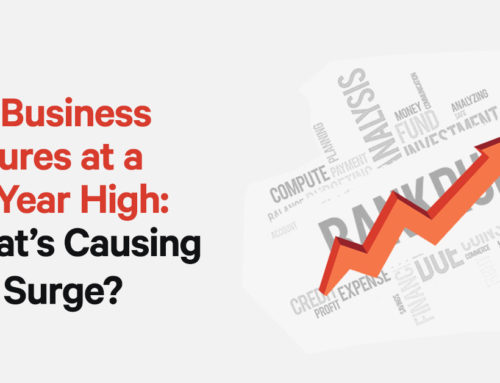There is no doubt that the UK economy has fallen on hard times in recent years. This is due to several reasons, but large contributing factors are the pandemic and its subsequent impacts, paired with political unrest. As a direct result of this uncertainty, a lot of businesses have been forced to close. The number of UK businesses in the closing process is expected to surpass the peak reached in 2009. This article will discuss why this is in more detail.
The Comments of Ric Traynor
Ric Traynor, the executive chairman of Begbies Traynor, commented that the number of companies that fail might exceed the peak reached in 2009. He stated that because businesses these days find themselves in a marketplace where interest rates continue to rise, it is more expensive than ever for struggling companies and surviving a potential recession will be difficult.
Traynor explained that one of the biggest problems for organisations would be an issue for the “usual suspects” within industries that serve the British consumer. The cost of living crisis is affecting people up and down the country, so spending will likely fall by a drastic amount.
The Comments of Geoff Rowley
Contrast the idea that the lack of consumer spending will be the main issue with the comments made by FRP Advisory Chief, Geoff Rowley. He said that most of the pressure put on companies is from their investors rather than the actions of their consumers. It doesn’t look like there is any sign of a break, even for those who have been investing for years.
The Impact of Pandemic Support Withdrawal
The pandemic was an unprecedented event for modern businesses, and as such, the government stepped in to provide support to organisations that were struggling. This worked for a time, but as the vaccine was developed and restrictions were gradually lessened, the government began to withdraw such support, leaving many businesses in an uncomfortable situation.
Though Traynor and Rowley disagree on the root of the problem, they agree that predicted insolvencies will worsen due to the withdrawal of pandemic support. Traynor explained that “it’s been well spent, and we are now finding out who can repay and who can’t.”
Rowley added to this, saying that there are still a lot of uncertainties surrounding how long the available liquidity and government-backed loans might be able to sustain some of the businesses in the UK that find themselves in trouble. He also said it will depend on “how proactive key creditors like HMRC and institutional lenders will be on addressing overdue debts.”
Traynor thinks that one of the more sought-after markets throughout the year is likely to be financial advisory. He stated that the prospects for property advisory and transactional services will continue to flow and bring forward new instructions and potential.
Other Issues Facing Business in 2023
Several other issues could potentially impact businesses throughout 2023, and these include the following:
- Energy Prices
Energy prices continue to rise due to the Russian war on Ukraine. The UK is also facing some challenges regarding energy security for 2023. There is a slight cushion given that a lot of businesses now use much cleaner options; however, the rise in energy costs will be a particular problem for businesses throughout the year. Businesses should consider what they are paying and look for other energy companies that may offer the same service but for less.
- The Supply Chain
Many businesses have been suffering from issues regarding their supply chain lately, which is expected to continue throughout 2023. The pandemic has led to massive issues surrounding labour shortages and transportation issues, contributing to the problems with supply. Again, thanks to the current war in Ukraine, there could be supply chain issues for organisations that do business within Eastern Europe. This is because the entire geopolitical landscape could change.
Businesses could prevent these problems by working with more local suppliers. This will make it much easier for organisations to get their supplies even if there are issues with labour and transport. It doesn’t need to be the case that you completely change your supplier; instead, you implement a new network that you can fall back on if problems arise.
- The Expectations of Customers
Businesses are going to need to stay competitive throughout 2023. As the cost of living becomes more severe, as mentioned earlier, customers will be less willing to part with money. As such, businesses will need to go above and beyond to ensure that they are producing quality that not only meets but exceeds the expectations of companies. This could include providing discounts to encourage customer retention, introducing innovative products before competitors have a chance, and providing excellent customer service to all clients.
Is Your Business Struggling Financially?
There are a number of potential issues that currently face businesses. As a result, it may be the case that your organisation is struggling financially, and you would like advice on the best way to proceed. If this is the case, you should contact us at Leading UK.
Here at Leading UK, we have a team of experts on hand who can look at the current situation of your business and consider your position in light of the current economic uncertainty. From there, we can advise you on how you should consider moving forward and assist with your finances. If you have any questions or would like any further information, do not hesitate to get in touch.






